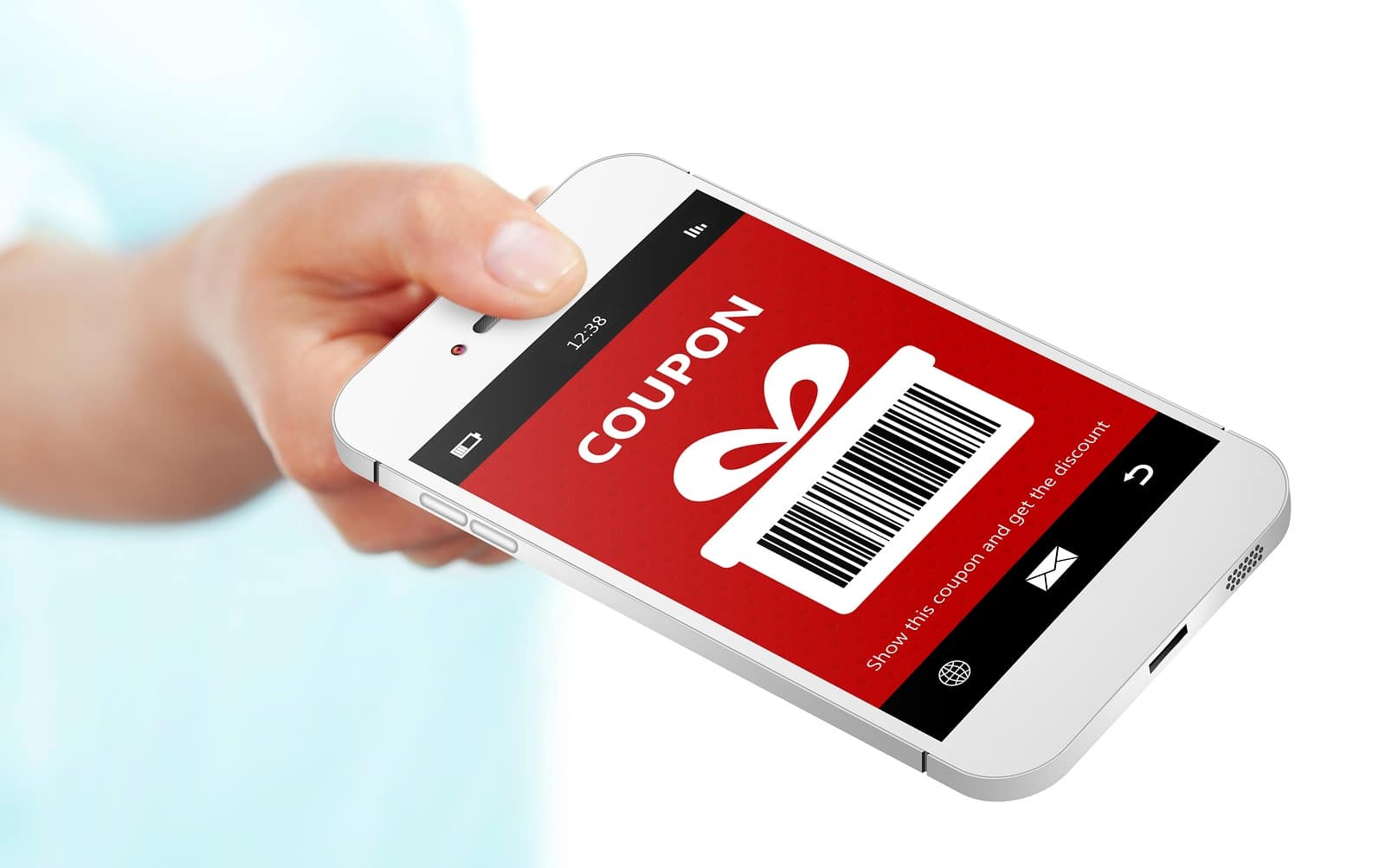Bigcommerce also calls these digital coupons. In the last decade, coupons were closely linked to discount cards. Today, coupons still function as discount offers, or promotional offers from an online store to prospective customers, aimed at inviting a consumer to purchase at an online marketplace.

Coupons provide benefit to consumers by attaching an added value to products that consumers buy online. These coupons can be downloaded from a merchant’s website through different platforms like email, social media and can be accessed by mobile devices.
To drive sales, E-commerce platforms offer mobile-only coupons integrated into the operations of mobile applications. As a result of the fast-growing popularity of mobile coupons, a form of discount has evolved known as coupon codes, a combination of brand-unique numbers and letters that are faster to download than a ticket, and more accessible for a buyer to complete at the point of sale.
Other incentives include automatic discounts applied at checkout and where the customer does not have to do anything to receive the discount. These forms of attraction reduce shopping and cart abandonment and churn rate by enticing potential buyers with offers of discounts.
An eMarketer study found that about 102.5 million people or 52 percent of American adult internet users redeemed digital coupons in 2013. The figure has been projected to increase by 55 percent or nearly 111 million customers in 2014.
Since coupons are easy to implement, merchants can track their progress and return on investment with online metrics. Coupons attract buyers to become returning customers and reduce cart abandonment. Since vouchers are used only once, denials and misplaced redemptions are reduced. At the same time, reimbursements from manufacturers are faster.
From a customer standpoint, coupons are delivered digitally and therefore are cost-effective, efficient and are more convenient for the buyer. Besides, sales reporting is well-documented.
One of the essential terms and conditions that go with a coupon is its expiry date which applies to specific types of users like those who downloaded the apps, customers from individual banks, new users and users of a particular service. The coupon(s) must be used before the date of expiry.
Other coupons impose a minimum amount and are valid only if a customer purchases an amount higher than a specified amount. On the method of payment, the general condition is usually paid by credit card or pay by online wallet service provider.
Other terms include the applicability of only specified products and services. Not all coupons may give all customers the discounts. Some cards will offer a discount if a customer buys something else from the same shop.
In the event of offline transactions, one has to produce the printed coupons available from the website of a service provider. Coupons may also appear in a local newspaper. One has to cut it out and present the ticket at the merchant’s shop to get the discount.
Some merchant retailers call these coupons promotional codes, while others label coupon codes. Both are the same thing which is a digital coupon. Instead of having a printed voucher to hand to the retailer, one enters a code in a box during checkout online. It works just like a printed coupon, a money-saving mechanism.






